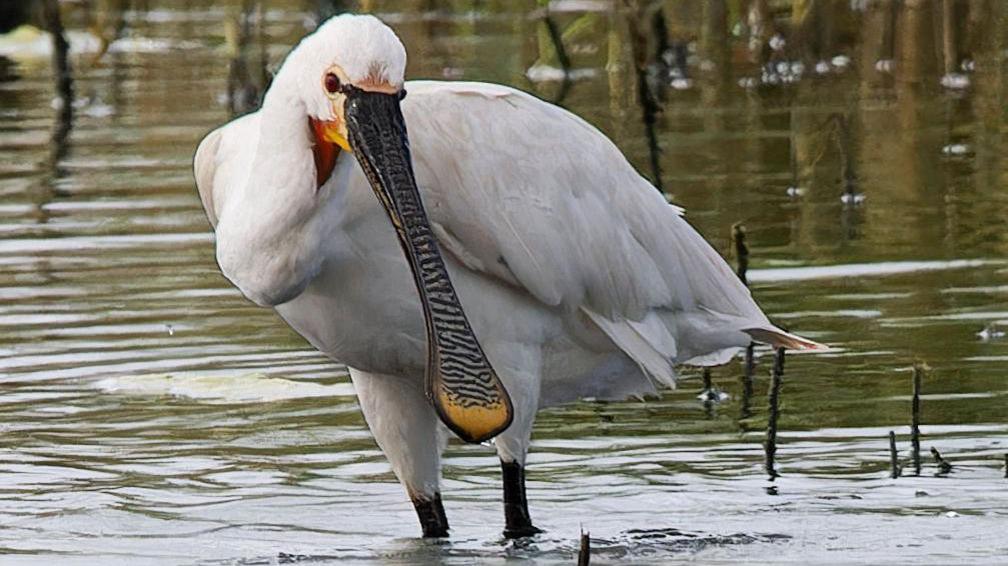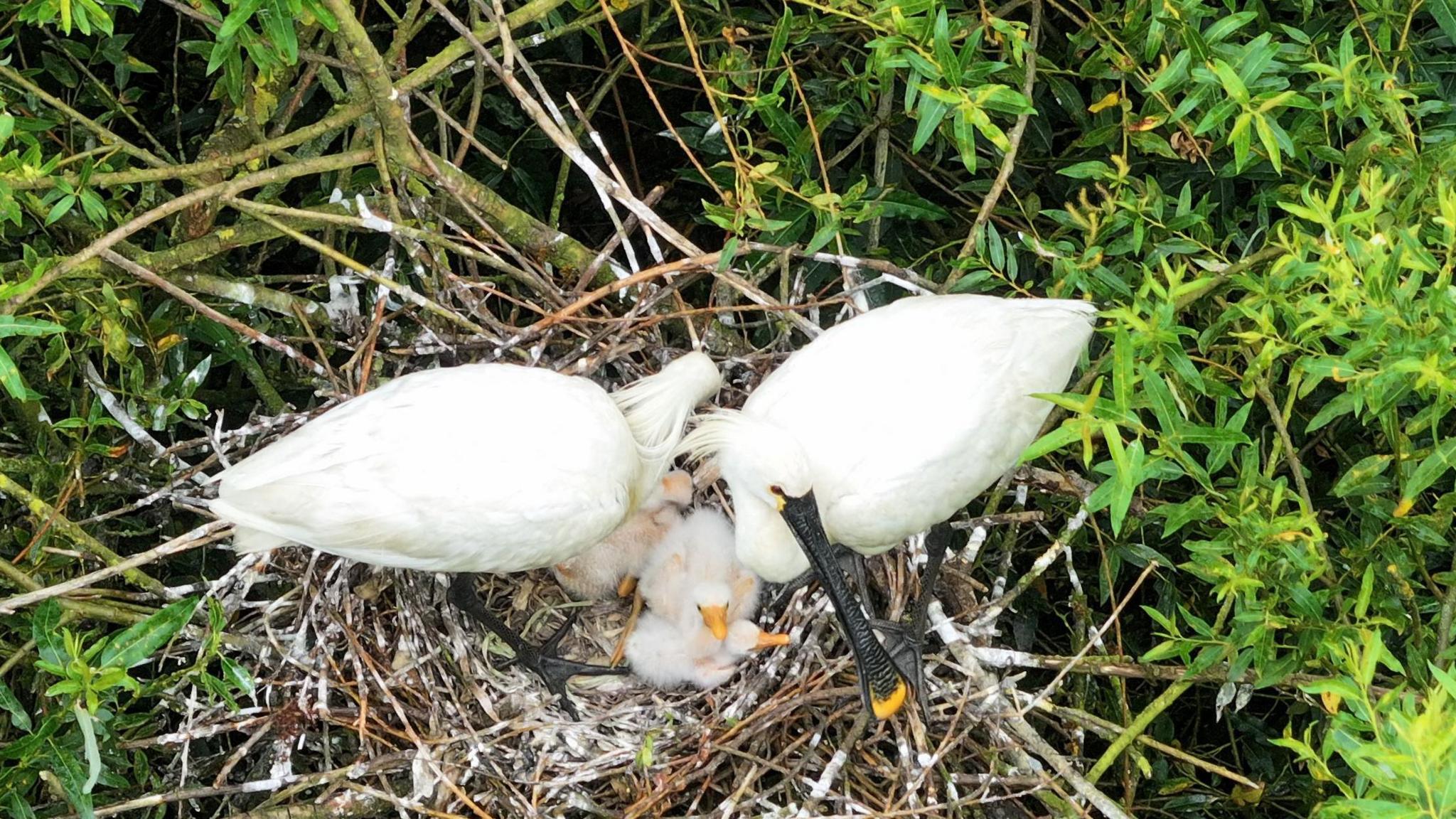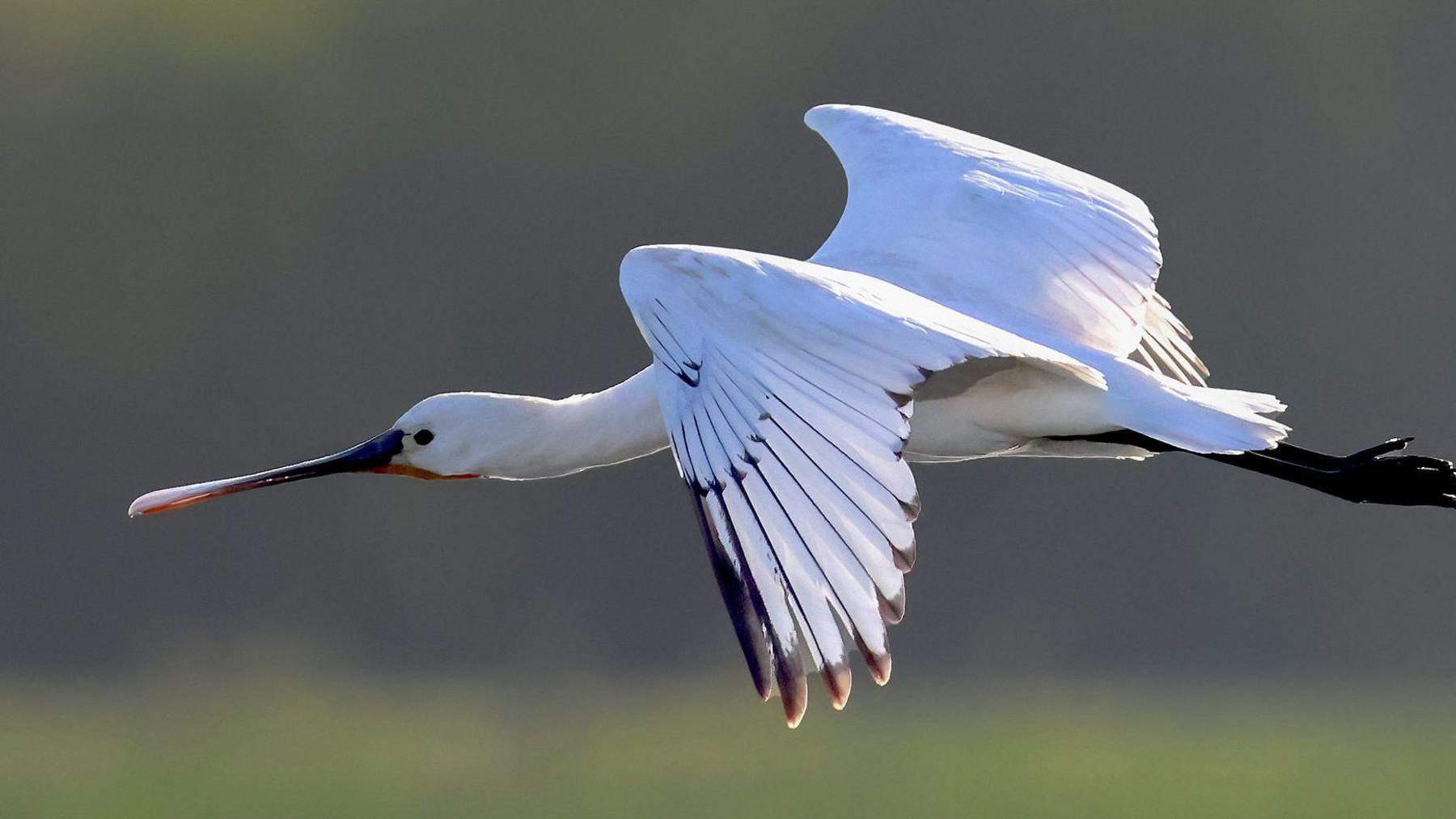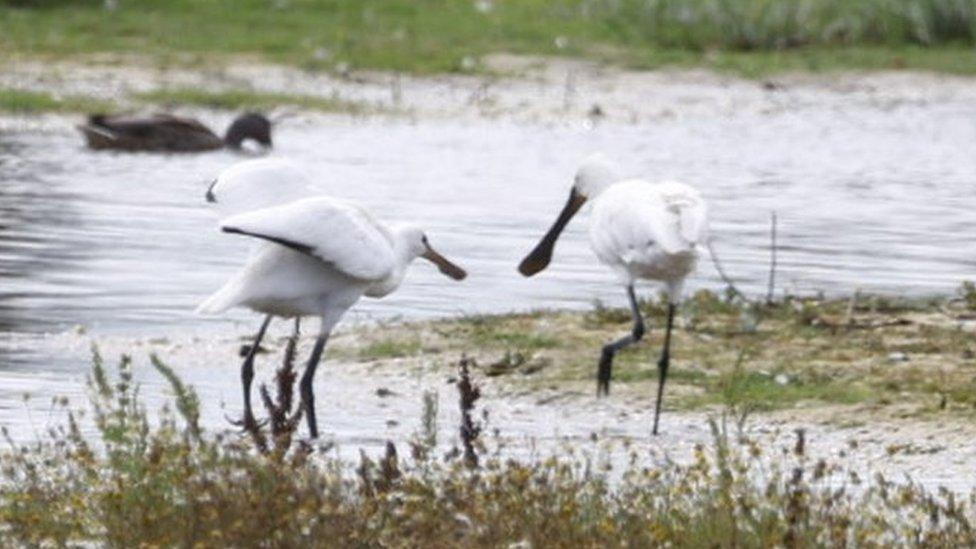Spoonbills return to county after 360-year absence

Spoonbills died out in Cambridgeshire due to over-hunting and the loss of their habitat
- Published
An RSPB site is celebrating the return of rare breeding birds not seen in the area since the 17th Century.
Staff at the RSPB Ouse Washes reserve in the Cambridgeshire Fens said they were "delighted" to have three pairs of breeding spoonbills, external - the first known to be nesting in the area in almost 360 years.
The species died out in the UK in 1668 due to being over-hunted and having their habitats destroyed.
The snow-white birds have long spoon-shaped beaks which has prompted the RSPB to nickname the chicks of the spoonbills "teaspoons".
Despite being a familiar sight during the 16th Century, not a single spoonbill bred successfully in the UK for more than 300 years, the RSPB said.
The last nesting spoonbill was recorded in 1668 and it was not until 2010 that the first regular colony of breeding birds was established at Holkham Nature Reserve in Norfolk – now the UK's largest colony.

One of three pairs of spoonbills at RSPB Ouse Washes, back after almost 360 years
Jonathan Taylor, senior site manager at RSPB Ouse Washes, said: "I have been working for the RSPB for over 30 years, and it is a career highlight to see spoonbills again.
"I did not expect to see a spoonbill here. I was very surprised when I saw one in mid-June this year.
"I felt quite emotional when I picked out the very distinctive bird through my view finder - I could not believe it."
Mr Taylor said the reserve, near Manea, now had three breeding pairs of spoonbills, all with three chicks each.
"There are believed to be about 90 breeding pairs across the country at nine different sites," he said.
"Our ones seem to know what they are doing - even though I'm sure it is the first time they have nested."
He said sightings of the breeding birds had resulted in "a lot of interest in the return of such an iconic wetland bird" on social media and among ornithological clubs.
"The Ouse Washes are generally very wet in the spring, but we must thank neighbouring farmers too for the return of the spoonbill," said Mr Taylor.
"They have created small wetlands to diversify their land-holding and the birds feed there, too.
"We have had spoonbills down as a targeted species to re-introduce here for some time."
Spoonbills return after 400 years
- Attribution
Get in touch
Do you have a story suggestion for Cambridgeshire?
Follow Cambridgeshire news on BBC Sounds, Facebook, external, Instagram, external and X, external.
Related topics
- Published18 July 2024

- Published8 August 2023
